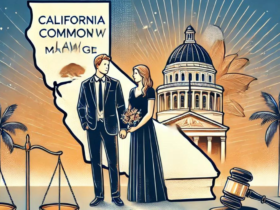Introduction To Romeo And Juliet Law
Definition And Overview
The Romeo and Juliet Law is a legal rule that deals with age differences in romantic relationships. It helps protect young people from serious legal charges when they are close in age. This law usually applies to situations where one person is just over the legal age of consent and the other is younger but still close in age.
Origin And Purpose Of The Law
The Romeo and Juliet Law came about to address issues where young couples faced legal trouble because of their age difference. The law aims to prevent serious legal consequences for relationships between teenagers and young adults who are close in age. It recognizes that close-in-age relationships should not lead to severe penalties, which helps avoid unfair punishment for young people in such situations.
History And Background
Historical Context
The Romeo and Juliet Law developed from concerns about young people facing harsh legal consequences due to age differences in romantic relationships. Before this law, teenagers in close-in-age relationships could face severe penalties, even if their relationships were consensual. The law aims to address these issues and protect young people from disproportionate legal action.
Key Milestones And Developments
The Romeo and Juliet Law has evolved over time. Initially, the focus was on preventing the prosecution of young people in consensual relationships. Over the years, many states and countries have introduced their versions of the law, each with specific age requirements and conditions. These changes reflect growing recognition of the need for fair treatment of young couples in close-in-age relationships.
How Romeo And Juliet Law Works
Key Provisions And Requirements
The Romeo and Juliet Law sets rules to protect young people in close-in-age relationships. It often includes provisions that prevent legal action if both individuals are within a certain age range of each other. This helps ensure that consensual relationships between young adults do not lead to severe criminal charges.
Age Differences And Legal Age Limits
The law usually specifies the age differences allowed between partners. For example, it may permit a relationship if one person is 16 or 17 and the other is no more than a few years older. Each state or country may have different legal age limits and conditions, but the goal is to protect young people from harsh legal consequences.
Consent And Protection Measures
The Romeo and Juliet Law emphasizes consent as a key factor. It requires that both individuals in the relationship agree to the romantic involvement. The law provides protection measures to ensure that young people in consensual relationships are not unfairly prosecuted. This helps balance the need to protect minors while allowing close-in-age relationships to avoid severe legal issues.
Variations By State Or Country
Differences In Application Across Jurisdictions
The Romeo and Juliet Law can vary widely depending on where you are. Each state or country may have different rules about how the law applies. For instance, some places may set a specific age difference that is allowed, while others might have different legal age limits. The requirements for what constitutes a close-in-age relationship can also differ, leading to varying protections and legal consequences.
Examples From Various States Or Countries
In the United States, many states have their own versions of the Romeo and Juliet Law. For example, in California, the law may protect individuals in a relationship where one partner is under 18 and the other is within three years older. In contrast, in Texas, the law allows a close-in-age exception if the older partner is less than 3 years older than the younger partner, and both are above a certain age.
Internationally, countries like the United Kingdom have similar provisions to prevent criminal charges for young people in consensual relationships close in age. However, the details and protections can differ significantly. Each state or country has tailored its laws to address local concerns and legal standards.
Impact On Young Adults And Relationships
Legal Protections For Young Adults
The Romeo and Juliet Law provides important legal protections for young adults. It prevents harsh legal consequences for consensual relationships where the partners are close in age. This helps ensure that young people do not face serious criminal charges for relationships that are deemed to be consensual and appropriate given the age difference. The law offers a safeguard against unfair legal actions, allowing young adults to navigate their relationships without fear of severe legal repercussions.
Effects On Relationships And Social Dynamics
The Romeo and Juliet Law can have a positive impact on relationships and social dynamics. By providing clear guidelines and protections, the law helps young couples maintain their relationships without undue legal stress. It acknowledges the natural development of relationships among young people and supports social acceptance. This law can reduce stigma and promote healthier attitudes towards teenage and young adult relationships by balancing legal protections with personal freedoms.
Legal Implications And Consequences
Potential Legal Outcomes
The Romeo and Juliet Law affects the legal outcomes for individuals in close-in-age relationships. If the law applies, it can prevent severe legal consequences like sex offender registration or criminal charges for consensual relationships. Instead, the law often results in reduced penalties or no legal action, provided the relationship meets the law’s requirements. This approach helps avoid disproportionate legal penalties for young people in such situations.
Case Studies Or Examples Of Legal Cases
Examples illustrate the impact of the Romeo and Juliet Law. For instance, in one case, a 17-year-old and a 19-year-old faced legal challenges due to their age difference. Because the 19-year-old was just above the legal age limit, they could have faced severe charges. However, because their relationship met the criteria set by the law, they avoided serious legal consequences.
Another example involves a 16-year-old and an 18-year-old. The younger partner was close enough in age to the older partner that the Romeo and Juliet Law protected them from serious criminal charges. These cases show how the law helps young people by offering protections and preventing harsh penalties for consensual relationships within a close age range.
Criticisms And Controversies
Common Criticisms Of The Law
The Romeo and Juliet Law faces some common criticisms. Critics argue that the law can be too lenient, potentially allowing relationships that involve significant age differences. Some believe this leniency might overlook cases where there is an imbalance of power or exploitation. Others worry that the law might not adequately address all situations where there are concerns about consent or maturity.
Debates And Controversies Surrounding The Law
Debates about the Romeo and Juliet Law often center on its effectiveness and fairness. Controversies include arguments over whether the law provides enough protection for younger individuals or if it sometimes fails to account for the complexities of individual relationships. There are discussions about whether the age limits set by the law are appropriate and if the law properly balances the needs for protection and the freedom of young people to engage in consensual relationships.
Recent Developments And Changes
Recent Updates Or Amendments
The Romeo and Juliet Law has seen various updates and amendments over the years. Recent changes often focus on refining the age limits and criteria for protection. Some jurisdictions have adjusted the age differences allowed or clarified the requirements for how the law applies to different situations. These updates aim to address concerns about fairness and ensure that the law remains relevant and effective.
Current Trends And Future Outlook
Current trends show a growing emphasis on making the Romeo and Juliet Law more inclusive and precise. There is increasing interest in ensuring the law provides appropriate protection while addressing concerns about consent and maturity. Future outlook suggests that further refinements may continue as societies and legal systems adapt to changing views on age and relationships. Lawmakers are likely to keep reviewing and adjusting the law to better balance the needs of young people with the need for legal safeguards.
Comparisons With Other Legal Protections
Similar Laws Or Regulations
Several similar laws or regulations exist alongside the Romeo and Juliet Law. These include laws designed to address age differences in relationships and provide protections for young people. For example, some jurisdictions have “close-in-age” exceptions or “age of consent” laws that offer legal safeguards for individuals in consensual relationships close in age. These laws often aim to prevent severe penalties for young couples and acknowledge the complexities of teenage relationships.
Differences And Similarities With Other Protections
Differences between the Romeo and Juliet Law and other legal protections can vary. Some laws may have different age differences or criteria for what constitutes a close-in-age relationship. For instance, certain jurisdictions might have stricter age limits or different definitions of consent.
Similarities include the common goal of preventing harsh legal consequences for consensual relationships between young individuals. Both the Romeo and Juliet Law and similar protections focus on reducing legal penalties and acknowledging the developmental stage of the individuals involved. While the specifics may differ, the underlying purpose is to balance legal protection with the realities of young adult relationships.
Conclusion
The Romeo and Juliet Law provides essential legal protections for young people in consensual relationships close in age, preventing severe consequences and ensuring fairness. By allowing for a more balanced approach to age differences, it reflects an understanding of the complexities of teenage and young adult relationships. While the law has faced criticisms and controversies, it remains a vital measure for protecting young adults from harsh legal penalties, highlighting its ongoing importance in adapting to societal and legal changes.
FAQS
What Is The Romeo And Juliet Law?
The Romeo and Juliet Law is a legal rule that protects teenagers or young adults from serious criminal charges if they engage in consensual sexual activity, and the age difference between them is small.
Who Does The Romeo And Juliet Law Apply To?
It applies to young people, usually between 16 and 19 years old, who have a small age gap, usually no more than 3-4 years, depending on the state.
Does The Romeo And Juliet Law Apply In All States?
No, not all states have this law, and the rules can be different in the states that do. You need to check your state’s specific laws.
Does The Romeo And Juliet Law Mean That Teens Can Engage In Any Sexual Activity Legally?
No, the law only prevents some teens from being charged with serious crimes like statutory rape if the relationship is consensual and the age gap is small.
Can The Romeo And Juliet Law Keep Someone Off The Sex Offender Registry?
Yes, in some cases, this law can help a young person avoid being put on the sex offender registry for consensual activities with someone close in age.
















Got a Questions?
Find us on Socials or Contact us and we’ll get back to you as soon as possible.